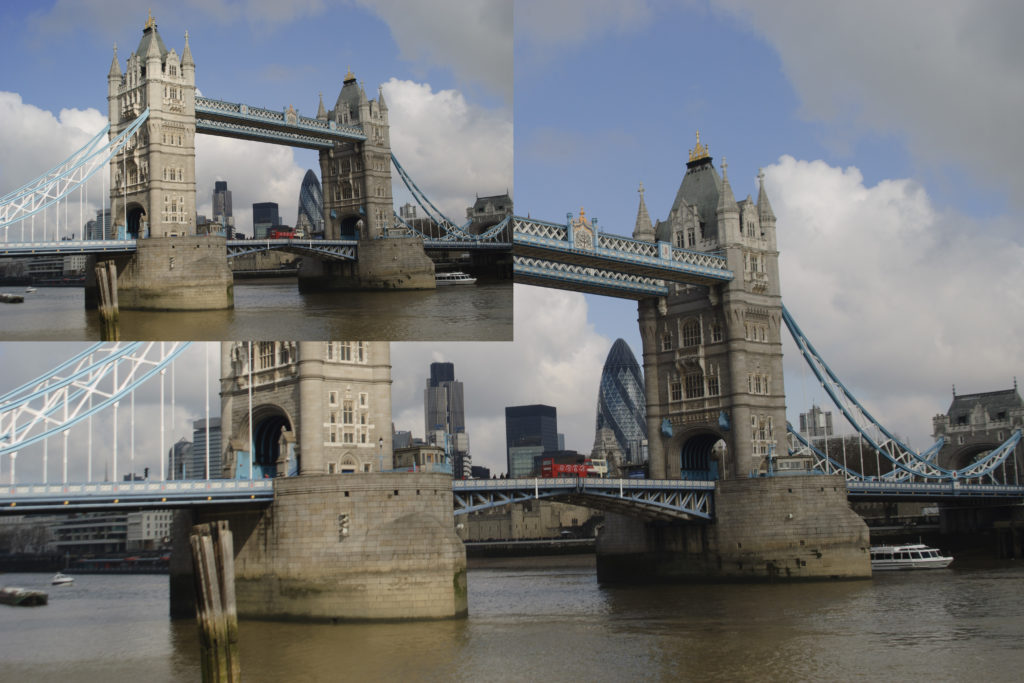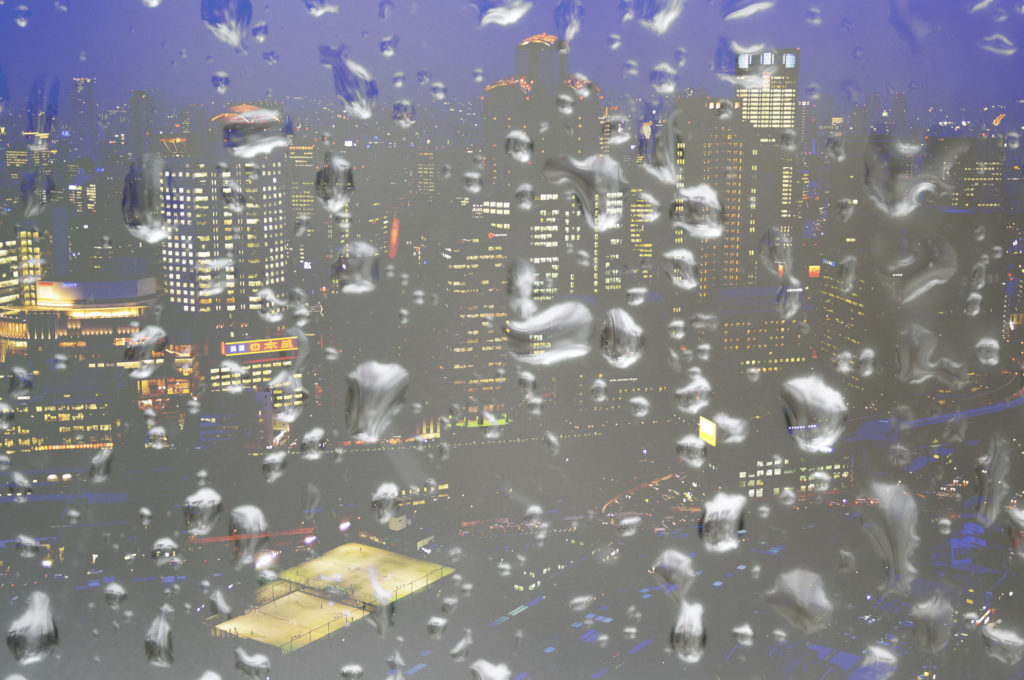One of the controversial issues in the world of photography is the use (or perceived over-use) of post production editing software like Photoshop.
Many of your will be aware that the UK recently banned L'Oreal's Lancome and Maybelline brands from showing ads with too much “airbrushing” including one with Julia Roberts and another with Christy Turlington. The argument was that the photoshopped image of Julia gave an unrealistic expectation of the advertised cosmetic products thereby misleading the public. Effectively false advertising.

The UK Advertising Standards Agency (ASA) was quoted as saying, “On the basis of the evidence we had received we could not conclude that the ad image accurately illustrated what effect the product could achieve, and that the image had not been exaggerated by digital post production techniques.”
The creator of the Campaign for Body Confidence, Jo Swinson said, “This ruling demonstrates that the advertising regulator is acknowledging the dishonest and misleading nature of excessive retouching.”
These are some pretty strongly worded claims.
On the other side of the fence, many people will point out that an image is “processed” as soon as it hits a digital sensor. Photoshop does very little that wasn't achievable in a traditional darkroom. Anybody who has worked with film will also know that many commercial images shot on film undergo days of darkroom processing before arriving at the final image.
So where should the line be drawn? Was the UK right to ban the Julia Roberts ads? How much Photoshop is too much?







21 Comments
Everyone in the UK is so very thankful that we have a government employee who saves us from being fooled by these images. Not.
Come on people, get real! I agree with the comments above – use your common sense, images are just that, images. What advertisements don’t shoot beyond reality? Ludicrous judgement in my opinion.
There are two issues here, false advertisement and photo retouching. Sounds like the UK used one issue to attack another, which is simply an example of an over reaching government. If the company did use false advertisement, that should be addressed, but it doesn’t really matter whether they used Photoshop to do it. As far as how much Photoshop is too much, that’s up to the artist, period!
I think its all in the context where the image is used, If Julia Roberts image is retouched and used on a magazine cover any thing goes but if you say buy this product and your skin will look like this then you are misleading the viewer
Was the government right? No. It should not be the governments purview to protect someone from the own poor judgement.
I would argue that the minute you light a subject to give shadows, or have them turn their head that you are falsely representing the person by showing them in their best circumstance.
Too much Photoshop? Yeah it can be overdone, but that is a question of aesthetics not ethics.
This was very well worded and is what I was to say. The only thing I would add is that air bushing has been doing just the same thing and I do not recall a government agency stepping in.
“Too much” is a vague and subjective concept. It all depends on what one is referring to. If an artist is working to make an image that is pleasing to the eye, that artist would be remiss to not use every available tool to achieve that goal. In this particular case though, the use of post-processing to mislead at best, and downright lie at worst, is unethical. My understanding is that these laws were already in place, and the marketing firms knowingly went too far. I don’t have a problem with the “photos” (at what point do they cease to be photos and become illustrations?) As they pretty clearly fell outside the letter of the law, and the models expressly forbade the companies to defend themselves by providing un-retouched photos.
The thing I find most amusing about the whole situation is the fact that the UK government is essentially claiming that the females in their country are too stupid to figure out on their own that such advertisements are always doctored.
I find it hilarious this ad was banned and it is advertising makeup – which is essentially in itself “false advertising”. If you can ban something based on it’s ability to enhance a photo, then makeup should be banned as well, no? Don’t get me wrong – I am pro makeup, love love, love it. I’ve got more Mac than an Apple store (see what I did there?) Photoshopping, retouching, airbrushing – it’s nothing new. Women know these ads are ridiculous, that is why you are allowed to ask for a test container with pro makeup like Lancome and they will usually give you a few days worth. I think the government needs to have more faith in in the brain power of it’s people. Sure the ad is overdone but to cause a stink over it makes me think this is a publicity stunt.
Also, I’d have to say it’s be better if she had two tickets to that thing I like…those tickets are now diamonds. She’s on a horse.
Oh shoot…. the hyperbole of the advertising world has gotten to me.
Avert ‘art’ is art with an intention of selling a product, growing a clientele. And, images in advertising often mislead, but then all our images are perceptually misleading. If I buy my makeup based in part on images distorted to enhance the effects of the product, am I a willing participant in self-deception based on neurotic need? Or, am I defrauded by a sophisticated industry preying on me through a need created by their manipulation. But, what the hell does this all have to do with PS?
Everyone knows how old Julia Roberts is. So by seeing this photo of her, the perception would be by most, that if this is what it can do for her it will do the same for me. Just a thought.
If these were ads for watches or shoes it wouldn’t matter. However they are in fact ads for a product that is made for your face. It’s not acceptable to change the face of the product.
Wow! I would have to say that food photography has a ton more manipulation to it. Basically, his comments would describe the whole advertising industry. Why start with this image?
I think it depends on the consumers whether they want to believe with the ads or not or have other opinion before buying the product. The government just want to protect their people from manupulation of the business company
How much photoshop is too much? This is an invalid question and speaks volumes to the misunderstanding the general public has about art. People assume, however wrongly, that because someone can buy a camera they can create art. Why? Does that same assumption carry through with other tools of art? Just because someone can pick up a paintbrush or a guitar do they automatically call themselves painter or musician? NO. And it is laughable to suggest so.
A camera is a tool an artist uses. Albeit a far too accessible tool. And photoshop (or the dark room traditionally) is a tool used by the artist as well. Unless this art is Documentary Photography, no one has any remote expectation of the art to be an altruistic universally objective true representation of reality. Please take a moment to reread those modifiers and understand them. They speak volumes to the fact that photographic art is cleaving a moment in time and showing everyone that no two people have the same perception of reality. A camera, a mechanical device to freeze a moment in time is assumed to be without subjectivity. However people forget it is the artist wielding that tool who imprints their vision and creates art. They do not freeze reality. And using other tools to show you the world anew is the beauty of the art. If someone assumes this is an objective reality they are simply ignorant and need to learn that art has NEVER been objective. It is about time that people put aside their inappropriate assumptions and stop imposing their beliefs on the artists. No one assumes “Transformers” was a news reel film showing alien car creatures battling on our planet. Stop assuming the model or the image or the photo is supposed to be real, it is not. And it never can be, a human being is showing you how they see the world, enjoy it.
The image below is a purple cone flower. I am unable to see purple or green. They are lost to my colourblind eyes. What you see here is what I see as normal. And to you, it looks nothing like reality. This is the artist behind the art. Just because you can pick up a camera or sit down to a computer does not mean you can see with my eyes.
I think the make-up situation is a bit different, it isn’t obvious what you are getting for your money, the only way to find out is to buy some and see. I didn’t know you could ask for a few days supply for free but then I bet a lot of people don’t know this (I’m male by the way so that might explain my ignorance) and I also bet that sales assistants don’t tell customers they can do this, they want to make the sale. In that situation then people want to know they can trust (at least to a reasonable extent) the images the make-up companies provide.
It would be similar to producing a new painkiller and saying it will stop the pain of a migraine within 30 minutes, all customers can do is take your word for it and then try it out for themselves (by which point if it doesn’t work it’s too late, they’ve already paid for it).
A different example though would be a photograph of a perfect sandwich in a takeaway that doesn’t match the ones you can actually see on the counter. You know before you buy it that it won’t look like that (and of course appearance is second to taste in choosing food).
As for editing where it relates to art, it’s up to the artist what they do with it, it annoys me when people take some kind of moral high-ground over a picture being over-doctored, but you can still say that as you edit an image of a place or a thing, at some point it becomes more of an impressionist image and further down the line it may cease to represent what you originally photographed all together.
I am pretty convinced that media and adverts do in fact a lot more harm than good in modern day society. Kids are anorexic because the ideal models are size 0, when smoking adverts were allowed and celebrities were featured a lot more kids thought smoking was cool. If anyone is being protected it’s the kids who are very impressionable and ignorant. Adverts are not meant to showcase the artistry of a retouching expert but the accurate effect of a product, I think
It’s a tough question. I’ve used PS for years, and have used it to create enhanced images for the purpose of maximizing sales – though most of my work is in creating art. However, I don’t go so far as to misrepresent a product.
I think the answer depends on what you’re trying to sell, and the extent of the manipulation. In the case of the makeup ads, is the manipulation results in something that is not achievable, then it might be too much. However, if the manipulation is simply removing blemishes, wrinkles, and optimizing colors for print, I don’t think it’s necessarily too much. When talking about makeup, the whole concept is about manipulating appearance, allowing women to present themselves in an unrealistic way. So, the ruling on these ads is both ironic and amusing.
These companies are trying to sell a product. Getting a model with perfect skin, the right age, etc, is next to impossible. Everyone has some imperfection they would rather not show the world. These companies worry, with good reason, that flawed skin might create a perception that their products might contribute to flawed skin. That is a fault with the consumer, not the company. The company must find ways of overcoming consumer ignorance.
As one person mentioned, there is more false advertising in food, and other product. When was the last time you got a burger from a fast food chain that looked even remotely like their ads? Car ads are *always* manipulated. Every photo in every ad has had some degree of editing. I think the question of how much editing is too much all comes down to a case by case basis. There will rarely be a clear answer.
I think this is a question of ethics aimed at advertisers rather than a question of image manipulation aimed at photographers.
In other words the original question should be “is it ok for advertisers to mis represent or exaggerate the effect of their products” NOT “how much photoshop is too much”
This arguiement isn’t about PS, its about body image and the expectations of the public about how they should look. Some seem to be concerned that the gov or courts are regulating us yet in their own blatent way advertising is doing the same by presenting us with such grossly unattainable goals.
Public image has always been with us but now it is strongly influenced by the presentation of the photographic image. Sure its always possible to excuse such imagery by suggesting all photos are manipulated in some way but if the intention is to deceive or manipulate and in some cases to lie and harm then the law is there to step in and suggest otherwise. Not everyone is as smart as Light Stalkers and can tell the difference. Growing minds can be considerably influenced by what appears to be ‘real’ and is not. And who isn’t influenced by photography in some way? Would you buy your next product if the photo you viewed was poorly recorded and didn’t show the product in its best light?
Our society now believes people do have a moral obligation as part of their work ethic. That applies to all occupations. Why should it not apply to advertising photography?
OK so I understand and agree with everything most of you have said about the use of photo shop in creating art. But this is not an issue of the use of photo shop in creating art. Stop taking it personally. It has no implications on the use of photo shop in ART. I think some of you have missed the point. This is about photo shop being used to deliberately and exceptionally enhance an image which was shot with the sole purpose of selling a product. Get it? It would be like using a camera to hit someone in the head instead of using it to create art. Using photo shop to mislead buyers is undesirable, using it to create or enhance art isn’t. The retoucher in question was not hired to take the photo of Roberts and leave his own artistic imprint on the image. His right to use photo shop to his heart’s content to create art is NOT the question. The question is whether the cosmetics brands should have free reign to use photo shop to ‘achieve’ something that they then go on to market their products as having achieved. We may look at such images and know instantly that they are highly altered but not everyone in society is so savvy. And it is unfair for anyone to say that every buyer out there should know better and that if they don’t it is ok for them to be ripped off.